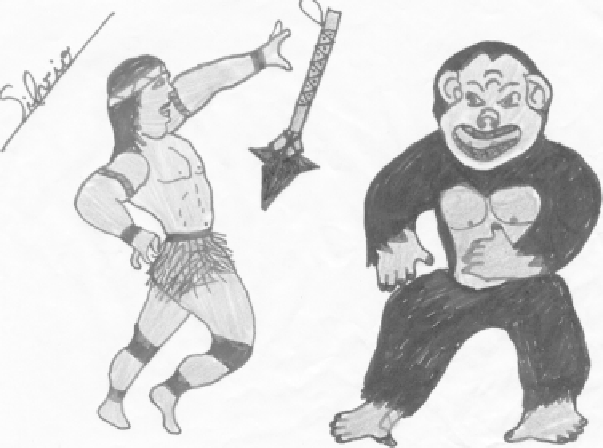Geography Reference
In-Depth Information
to transcend the finite existence of humankind on
Ywy Mbae'megua -
this bad,
destructible world - to the infinitude of the Ywy Marae'y, the Land-without-Evil
(Clastres 1995:76). This earthly realm is imperfect because doomed to future
destruction, while the heavenly domain is characterized by infinite opulence and
leisure, no work, and denial of all prohibitions. “This amounts to saying that
evil
- labor, law - is the
society
. The absence of evil - the Land-without-Evil - is the
counter-order” (Clastres 1995:56).
In their play, the children reveal how they have chosen to battle inequality, recreate
reciprocity, and reinvent Guarani apocalypse. From their perspective, unless idyllic
qualities of the mythic paradise are reproduced here and now on this wicked world, they
will not attain kandire, but die prematurely and end up in the
Cemitério da Igualdade
.
This is the municipal cemetery on Mongaguá - a small beach resort located on the
southern coast of the state of São Paulo, 80 kilometers from São Paulo City - where
Guarani kids are buried in cardboard coffins cemented side-by-side in cubby holes
in an eight-foot wall. They die of starvation and dehydration, tetanus, typhoid fever,
leptospirosis, and tuberculosis, but are nevertheless buried “without discrimination,”
as one of the cemetery's keepers put it in 1999. “They should be grateful,” the man
added, “they have a place to drop dead” (
devem ficar felizes por ter onde cair mortos
).
The performances presented in this piece reveal that the little ones want to achieve
kandire without dying, and illustrate the ways in which the children have transfigured
Nhande Rekó in order to remain well and alive, recreating the abundance of the Ywy
Marae'y here and now, rather than in an unapproachable overseas eternity.
Figure 3.3. Xondaro confronts a monster. By Sílvio Karaí, 1999.

